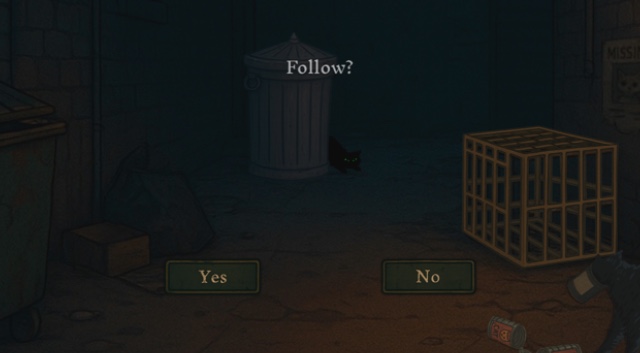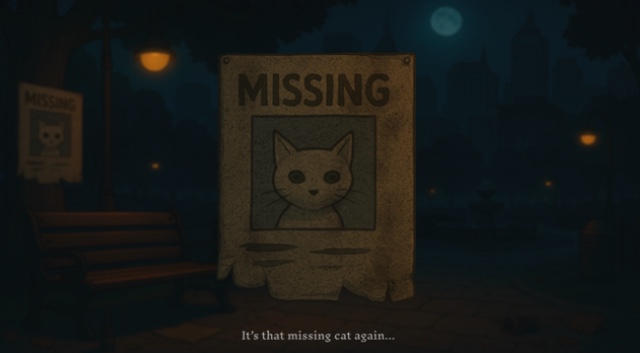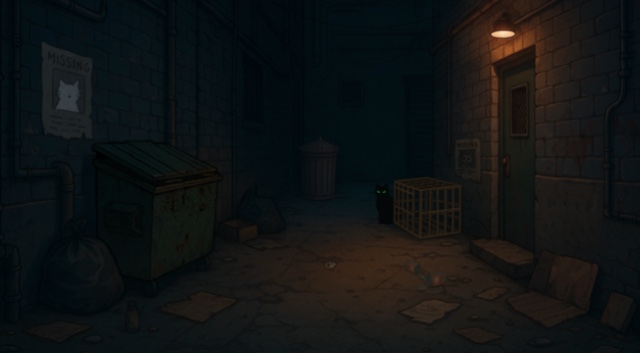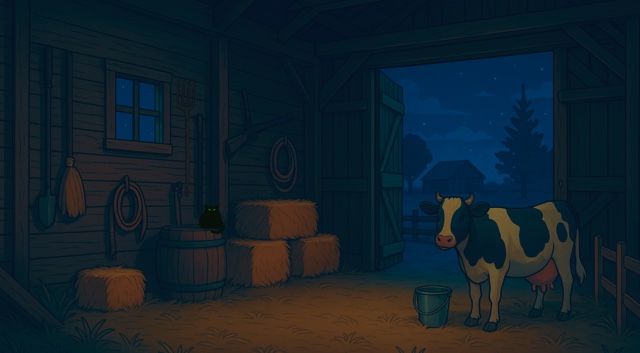Maya Leszczynska
Pixels, Paws and Morality - Exploring Human-Animal Relationships Through Interactive Media
This project is a critical investigation into how video games can serve as a space for exploring moral ambiguity, empathy, and human-animal relationships. Drawing from interview-based research, it examines how players emotionally engage with digital animals, and how these interactions reflect, challenge, or reinforce real-world ethical perspectives. The aim is to design an interactive experience that encourages players to reflect on their choices and confront their own assumptions about animal agency, empathy, and anthropocentrism. The resulting game places players in an interactive, visually driven environment. Players encounter a stray cat that signals hunger, prompting a journey through morally complex scenarios to find food. These scenarios are designed to be ethically ambiguous, avoiding clear “right” or “wrong” answers. For example, players may choose between following the protagonist cat or helping another stray cat, each with consequences that are not always immediate or obvious. The game’s mechanics focus on small but emotionally resonant interactions, alongside subtle behavioural cues, from the cat, that respond to player actions. Inspired by real-world observations of how humans project emotions and personalities onto animals, the game uses these interactions to encourage empathy and reflection of human-animal relationships. By blending environmental storytelling, player agency, and ethically nuanced decision-making, the project aims to transform gameplay into a moral playground, where emotional relation becomes both a tool for engagement and a catalyst for ethical reflection. The exhibition version invites players to not only “play” the game, but to consider how their choices echo real-world dynamics of animal relationships, empathy, and anthropocentrism. The project highlights the potential for interactive media to encourage empathetical reflection, foster empathy, and give meaningful agency to non-human characters in digital worlds.




